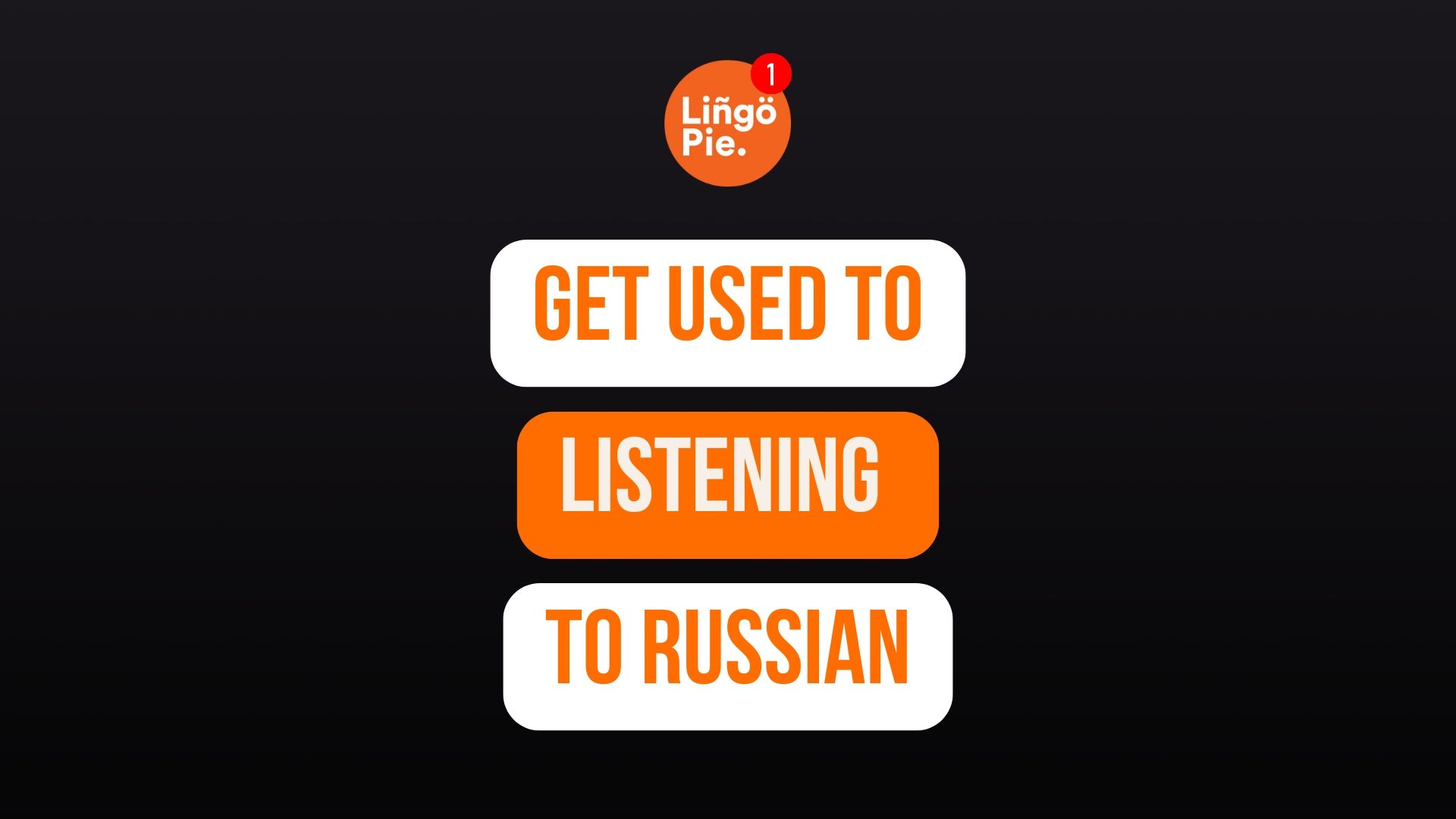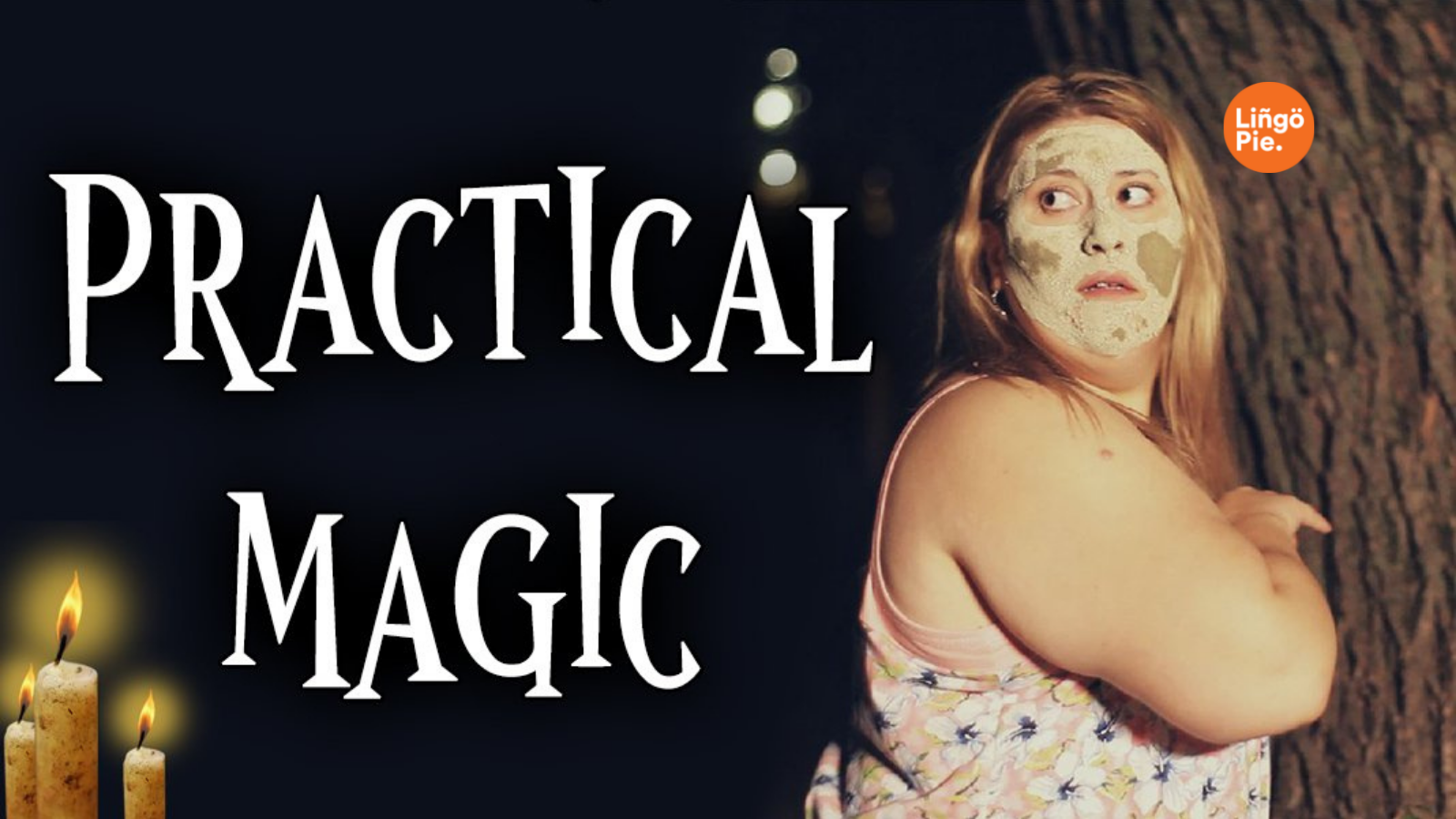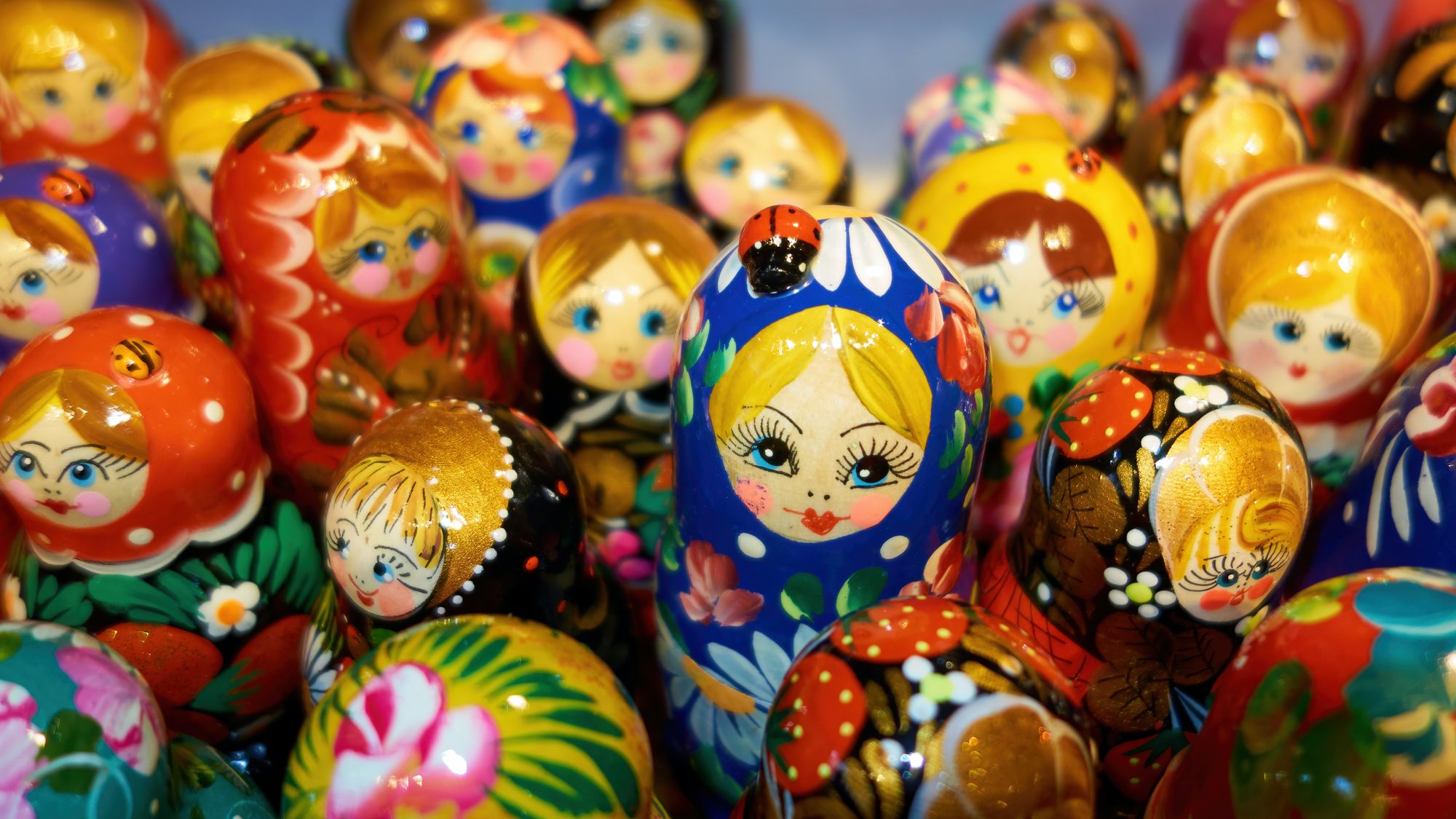Did you know that Russian is the ninth most spoken language in the world, with over 258 million speakers? As someone who’s navigated the twists and turns of learning Russian—from mastering the Cyrillic alphabet to decoding its notoriously tricky grammar—I can tell you this: the effort is worth every minute.
In this guide, I’ll walk you through the essentials to kickstart your Russian learning journey. By the end, you’ll not only grasp the basics but also discover a few surprising hacks that made all the difference for me
5 Best Russian Learning Websites You Should Try
5 Best Russian Documentaries To Watch To Learn Russian
13 Essential Russian Greetings You Need To Know

The Russian Language And Culture
Like many European language systems, Russian relies on different grammatical rules than English, which can initially make it confusing for English speakers.
For example, just as in the Romance languages, you must gender your nouns. There are neuter, masculine, and feminine nouns, though these are easily identified by the letters used at the end of the word – a system that’s only ever deviated from in a few cases due to physical gender.
That's right – when speaking Russian, you can drop the 'the'!

How To Start Learning Russian By Yourself
The Russian language is a tricky one, not least because it uses the Cyrillic alphabet rather than our more familiar Latin one.
You'll find plenty of resources online, from free or cheap Russian courses and Russian language ebooks and podcasts, as well as lists of Russian verbs and their conjugations and those all-important feminine and masculine nouns.
To help you learn Russian efficiently and correctly, here are some of our tried-and-tested tips for success.

1. Get used to listening to Russian
The Russian language sounds quite unfamiliar to the American ear because its pronunciation is very different. But actually, once you break its sounds down, it's a lot simpler than English.
Think about English vowels – each of them can make countless different sounds, which native speakers don't stress out about too much, but which certainly make it difficult for language learners to get to grips with our hybrid language.
Russian, on the other hand, has relatively few sound options for each of its letters, and most actually just have one possible sound.

2. Watch Russian TV with subtitles
Our favorite way to kill two birds with one stone, and get used to listening to the Russian language and seeing it written down? Binge-watching some Russian TV shows with the subtitles on.
At first, you'll have to rely pretty heavily on English subtitles, but you'll work towards being able to watch with the help of Russian subtitles.
Oh, and we'd hate to toot our own horn, but if you watch on Lingopie, you can opt to have both sets of subtitles on the go at the same time. And you'll be able to click on unfamiliar words to get a quick definition, too!

3. Write down new Russian vocabulary every day
When you're learning a new language, every day is full of 'eureka' moments – particularly if you're an absolute beginner. That's because the vast majority of the words and phrases you'll stumble upon will be brand new to you.
Make sure to take advantage of these learning opportunities by keeping a notebook full of new vocabulary that you pick up in your studies.
By writing them down, you can revisit them later and ensure they don't just go in one ear and straight back out the other. If you're looking for somewhere to start, here's a table with some of the most common Russian words:
| Russian Script | Transliteration | English |
|---|---|---|
| Стол | Stol | Table |
| Стул | Stul | Chair |
| Кровать | Krovat' | Bed |
| Дверь | Dver' | Door |
| Окно | Okno | Window |
| Ручка | Ruchka | Pen |
| Книга | Kniga | Book |
| Телефон | Telefon | Telephone |
| Чашка | Chashka | Cup |
| Тарелка | Tarelka | Plate |
| Вилка | Vilka | Fork |
| Нож | Nozh | Knife |
| Ложка | Lozhka | Spoon |
| Часы | Chasy | Watch/Clock |
| Зеркало | Zerkalo | Mirror |
| Дом | Dom | House |
| Машина | Mashina | Car |
Familiarizing yourself with these common object words can help build a solid vocabulary foundation for everyday conversations and comprehension.

4. Learn the Russian Alphabet
One of the primary stumbling blocks that stop people from learning Russian is the Cyrillic alphabet. While some letters are the same as in the English alphabet, there are a few that are different like the Ж (pronounced as she) and the П (pronounced as pe).
The rest, though, will be best learned in much the same way you learned the alphabet as a child – listen, sound them out, and write them down before progressing to basic words.
Once you've got the alphabet learned, you'll have crossed one of the biggest hurdles of learning Russian, because it's a phonetic language, so everything is spelled exactly as it sounds.

5. Invest in Russian Books for Beginners
Due to its unique alphabet, it's really important that you dedicate plenty of your study time to reading and writing Russian, so you can get used to working with the Cyrillic alphabet and begin to recognize Russian words.
While reading Russian books provides excellent comprehensible input, it's also beneficial to actively learn common words and expressions you encounter frequently. Noting them down and practicing can help solidify your knowledge.
Here's a table with some common Russian expressions to get you started:
| Russian Script | Transliteration | English |
|---|---|---|
| Привет | Privet | Hello |
| Спасибо | Spasibo | Thank you |
| Извините | Izvinite | Excuse me |
| Да | Da | Yes |
| Нет | Nyet | No |
| Пожалуйста | Pozhaluysta | Please |
| До свидания | Do svidaniya | Goodbye |
| Хорошо | Khorosho | Okay |
Making note of high-frequency vocabulary and expressions you pick up from shows, and deliberately reviewing them, can complement the comprehensible input you receive through viewing. This combined approach helps reinforce what you're learning.

6. Speak Russian out loud when you're alone
Learning to speak a new language is intimidating – we know from experience!
But while a Romance language like French or Spanish might at least sound quite familiar as it rolls off your tongue, Russian is going to sound strange and harsh the first few times you try to speak it.
Our solution? Practice speaking Russian out loud on your own first, so you can get used to the new sounds in your own voice.
This leads us to our next point...

7. Make Friends with Russian Speakers
There's no substitute for a conversation with native speakers when it comes to learning a new language.
Find a language learning partner online or in a local language group, and you'll not only get the chance to practice colloquial Russian in a real-life situation, but you'll also get the chance to learn about Russian culture and its civilians.

8. Skip the Grammar Stress!
If you ask any language learner what's most likely to put them off their studies, almost everyone will say the same thing: grammar rules.
Learning Russian grammar rules takes a particularly solid commitment, because Russian, like all Slavic languages, uses strict and complex grammar that won't bear much of a resemblance to what you're used to.
Need help with basic Russian grammar? Here are the basic rules to keep in mind!
| Grammar Rule | Example | Transliteration |
|---|---|---|
| Nouns have gender (masculine, feminine, neuter) | Стол (masculine), книга (feminine), окно (neuter) | Stol, kniga, okno |
| Nouns change ending based on case (nominative, accusative, etc.) | Я вижу кошку (accusative) / У меня есть кошка (nominative) | Ya vizhu koshku / U menya est' koshka |
| Adjectives must agree with nouns in gender, number, case | Красная машина (feminine singular), красные машины (plural) | Krasnaya mashina, krasnyye mashiny |
| Verbs conjugate based on subject | Я читаю, ты читаешь, он/она читает | Ya chitayu, ty chitayesh', on/ona chitayet |
| Basic word order is Subject - Verb - Object | Маша читает книгу | Masha chitayet knigu |
| Negation is formed by putting "не" before verb | Я не читаю | Ya ne chitayu |
| Personal pronouns can often be omitted | (Я) Читаю книгу | (Ya) Chitayu knigu |
| There are no articles (a, the) in Russian | Книга интересная | Kniga interesnaya |
| Basic present tense verb endings: -у/-ю, -ешь, -ет, -ем, -ете, -ут | Я читаю, ты читаешь, он читает | Ya chitayu, ty chitayesh', on chitayet |

9. Take a vacation to Russia
There's nothing quite like total immersion when it comes to learning a language – particularly when it's a language like Russian, which is so different from English.
10. Learn Russian with Lingopie
Of course, it's not always possible to travel to Russia, and there are only so many grammar lessons and Russian courses you can take before you simply need to test your listening and speaking skills in the wild.
One great way to do that is by streaming Russian movies and TV shows. We've got loads to choose from on Lingopie. Here are some of our favorites to get you started.
Russian Movies & TV Shows on Lingopie
Practical Magic

What do you do when you're in your thirties, single, and starting to feel a bit desperate? Resort to magic, of course.
Return to Yourself

After suffering a sexual assault, Lena's life changes – and the hunt for her attacker gets increasingly complex.
Flight

A conscripted soldier returns home to avenge his family's death after a tragic plan accident – but when he falls in love, his plans for revenge become a little more complicated.
The Russian Language: Key Traits and Characteristics
The first time you hear the Russian language spoken, you might be taken aback by how harsh it can sound when it's not your native language.
That's because it doesn't have the same Latin roots as many of the European languages we're used to hearing, and is made up of very distinct sounds for each letter of its alphabet.
When spoken, it uses a monosyllabic emphasis to set the tone of the sentence, which can sound quite forceful to an untrained ear.
But with time and practice, Russian will sound familiar, friendly – and totally comprehensible.
Why You Should Learn Russian
Need some incentive to study Russian? We'll let the country speak for itself.
Russia is a beautiful country worth visiting
Having visited Russia myself, I can attest that learning the language opens doors to fully appreciating this nation's incredible cultural treasures and natural splendor.
In Moscow, conversing in Russian allowed me to connect with locals who eagerly shared the deep significance of sights like the colorful St. Basil's Cathedral domes. In St. Petersburg, speaking the language brought the city's opulent palaces and museums to life through passionate guided tours.
From bargaining with vendors at local markets to deciphering road signs on cross-country road trips, Russian proficiency immersed me in the genuine experiences that make this country so spellbinding. Without the language, much of Russia's authentic charm and wisdom would have remained inaccessible.
If you dream of drinking in all of Russia's cultural riches and wild, natural glory, taking the time to learn its language will prove an invaluable investment.
Russian is spoken by hundreds of millions of people
Having studied Russian, I've experienced firsthand how widely spoken this language truly is across the world. Trust me - proficiency in it opens up communication with 258 million Russian speakers globally.
During my travels, I found the language extremely useful, not just in Russia itself, but throughout former Soviet nations. From ordering meals at cafes in Kazakhstan to conversing with friendly locals in Kyrgyz markets, my Russian skills enabled me to connect with people in a way simply not possible through English alone.
Because it was the de facto official language of the Soviet Union, most residents of former Soviet countries can speak Russian with some degree of proficiency, which further widens the scope of its use.
Speaking Russian will enable you to learn other languages
As someone who gained fluency in Russian, I've been amazed at how this linguistic knowledge opened doors to comprehending other Slavic tongues. The rewards of this became clear during my travels across Eastern Europe.
In Ukraine, I found myself able to understand snippets of conversations and read signs and menus with relative ease, thanks to the close similarity with Russian. While Ukrainian has distinctive grammar and vocabulary, my Russian base provided an invaluable shortcut.
The same held true in Belarus, where the languages share even more overlap. Whether chatting with locals in Minsk or exploring small rural towns, my Russian skills allowed me to navigate basic communication without struggling to interpret an entirely new system.
This cross-comprehension extended to other Slavic languages like Polish, Czech, and Serbo-Croatian too. Though I didn't study them formally, Russian gave me a scaffolding to decipher words, sounds, and structures that felt somewhat familiar.
Russian culture is fascinating

As someone who studied Russian, I know for a fact that the language allows you to access deeper layers of meaning behind the nation's iconic art, literature, and history.
Classic novels by titans like Dostoevsky and Tolstoy come alive when you can appreciate the nuances of the original Russian text. Reading Pushkin's poems or watching acclaimed theatre productions of Chekhov's plays allows you to drink in the masterful language craft firsthand.
Beyond literature, my Russian skills helped me understand the symbolic weight behind architectural wonders like Moscow's ornate subway stations or the contrasts between lavish imperial palaces and stark Soviet Brutalist styles. Touring these sites with Russian-speaking guides yielded fascinating cultural contexts often lost in translation.
Even something as simple as exploring Russia's diverse cuisine became richer when I could fully comprehend menu descriptions and converse with vendors at local food markets about specialties and ingredients.
Useful Russian Words And Phrases For Beginners
Learning the complexities of Russian history is fascinating and, some might argue, necessary – but it won't help you order a meal in Moscow or find the nearest train station. For that, you need practical vocabulary.
Here are a few words and phrases you'll need to know to get around a Russian-speaking country:
| Russian Script | Transliteration | English |
|---|---|---|
| Здравствуйте | Zdravstvuyte | Hello |
| Спасибо | Spasibo | Thank you |
| Пожалуйста | Pozhaluysta | Please/You're welcome |
| Где...? | Gde...? | Where is...? |
| Как пройти к...? | Kak proyti k...? | How do I get to...? |
| Сколько стоит? | Skol'ko stoit? | How much is it? |
| Не понимаю | Ne ponimayu | I don't understand |
| Говорите медленнее | Govorite medlennee | Speak more slowly |
| Туалет | Tualet | Toilet/Restroom |
| Выход | Vykhod | Exit |
| Вокзал | Vokzal | Train station |
Mastering these basic phrases for greetings, directions, shopping, and getting assistance can go a long way in helping you navigate Russian-speaking regions with more ease and confidence.
Frequently Asked Questions
Is the Russian language hard to learn?
Russian is considered a challenging language for English speakers due to its Cyrillic alphabet, complex grammar, and pronunciation nuances. The Foreign Service Institute classifies it as a Category IV language, requiring approximately 1,100 class hours to achieve proficiency.
However, many learners find that consistent practice and immersion can make the process manageable. Using tools like Lingopie, which offers Russian TV shows and movies with interactive subtitles, can provide contextual learning that enhances vocabulary and comprehension.
How to learn the Russian alphabet fast?
Learning the Russian Cyrillic alphabet can be accomplished quickly by grouping letters based on their similarity to Latin characters, using mnemonic devices, and practicing with cognates—words that are similar in both Russian and English. For instance, recognizing that "А" in Cyrillic is pronounced like "A" in English can aid memorization.
Incorporating multimedia resources, such as Lingopie's Russian content with subtitles, allows learners to see and hear letters in context, reinforcing their understanding. Regular practice and exposure are key to mastering the alphabet efficiently.
Should I start learning how to speak Russian as a beginner?
Absolutely! Starting to learn Russian as a beginner is a rewarding achievement. While the language has its complexities, beginning with basic phrases and gradually building your skills can lead to steady progress. Utilizing platforms like Lingopie, which provides Russian media content with interactive subtitles, offers an immersive experience that enhances listening and speaking abilities. Engaging with native content helps learners develop a natural understanding of pronunciation, vocabulary, and grammar in real-life contexts.
Is Russian an easy language to learn?
Russian can be challenging for English speakers due to its Cyrillic alphabet, complex grammar (like noun cases and verb aspects), and pronunciation. However, with consistent practice—especially through immersive tools like Lingopie or language exchanges—it becomes manageable. Tip: Start with cognates (e.g., "ресторан" = "restaurant") to build confidence.
How do I start speaking Russian?
Begin with these steps:
- Learn Cyrillic: Master the alphabet first (it takes ~1 week).
- Phrase drilling: Practice daily greetings like "Здравствуйте" (Hello, formal) and "Как дела?" (How are you?).
- Use apps: Try Lingopie for contextual learning through Russian TV shows.
- Speak early: Join language meetups or use platforms like Tandem to practice with natives.
What are basic Russian words I should learn first?
Prioritize these essentials:
- Привет (Privet) = Hi (informal)
- Спасибо (Spasibo) = Thank you
- Да/Нет (Da/Nyet) = Yes/No
- Как вас зовут? (Kak vas zovut?) = What’s your name?
- Я не понимаю (Ya ne ponimayu) = I don’t understand
How to say "hi" in Russian?
Use:
- Привет (Privet) = Casual "hi" (for friends)
- Здравствуйте (Zdravstvuyte) = Formal "hello" (for strangers/elders)
Pro tip: Здравствуйте is tricky—break it into "zdra-vstvuy-te" to master it.
How do I reply to "привет"?
Common responses:
- Привет! Как дела? (Privet! Kak dela?) = Hi! How are you?
- Нормально (Normal’no) = Fine
- Отлично! (Otlichno!) = Great!
For a fun twist, locals often use "Что нового?" (What’s new?).
Ready To Learn Russian With Lingopie?
While the Russian language is undoubtedly a tricky one, there's no reason why you can't learn to speak Russian reasonably competently in just a few months.
To get you started on the right track, why not dive into Lingopie's stocked archive of Russian movies and TV shows?
Sign up for a free trial today and learn Russian now!
And if you're still unsure, why not do some more reading? Here's an article on The Best Way To Learn Russian On Your Own to help you decide.




![Math In Spanish: A Complete Beginner’s Guide [2025]](/blog/content/images/2025/04/Math-in-spanish.jpg)
![How To Say Happy Birthday In Punjabi [Complete 2025 Guide]](/blog/content/images/size/w1200/2024/07/How-To-Say-Happy-Birthday-In-Punjabi.jpg)

![Russian Alphabet: Everything You Need to Know [2025]](/blog/content/images/size/w300/2025/04/Russian-alphabet-.jpg)

